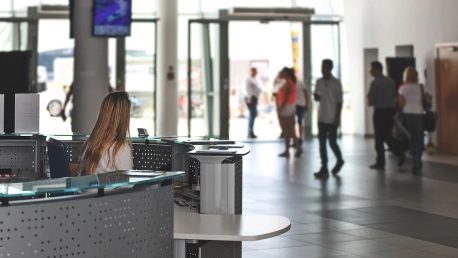The travel sector stands on the cusp of a transformative age, driven by rapid advancements in technology that are reshaping the entire landscape. The innovations touch every aspect of the journey, from booking processes to on-site experiences. This new wave is set to enhance customer service, promote eco-friendly travel solutions, and improve efficiency for both travelers and providers.These technological breakthroughs signify a shift toward a more sustainable, user-focused, and thrilling future for travel. Pioneering trends are at the forefront, playing a crucial role in revolutionizing the industry. As we examine these trends more closely, it’s clear that technology isn’t just altering the way we travel – it’s elevating it to new heights, offering a promise of a more connected and convenient world of exploration. These changes promise to usher in an era of travel that is smarter, greener, and more tailored to the preferences of travelers, ensuring that the industry grows in a direction that benefits all stakeholders involved.
The Sustainable Travel Revolution
As awareness of climate change intensifies, the travel industry is exploring new horizons of sustainability, seeking to reduce its carbon footprint. Technological innovation drives this transition, introducing breakthroughs such as electric propulsion in aviation, which promises to cut emissions drastically. Today’s travelers are not just passengers but conscious participants, gravitating toward services that offer greener options and more responsible modes of travel.Renewable energy solutions are at the forefront of this revolution. Solar-powered hotels and resorts harness natural energy, redefining the concept of eco-tourism. In transportation, biofuel usage is on the rise, offering a sustainable alternative to conventional fuel. The industry’s commitment to renewable sources is not a trend; it’s a necessary shift to ensure the future of travel aligns with the health of our planet.Sustainable accommodations and transport are no longer niche; they are becoming mainstream expectations. Energy-efficient design in hotels, waste reduction measures, and water conservation initiatives are examples of how the industry is adapting. In transport, the advent of electric cars and trains, coupled with ride-sharing platforms, underscores a movement toward reducing environmental impact while still facilitating exploration and discovery.
Customizing the Journey with AI and Big Data
In an era where personalization is key, AI and big data have emerged as the master tailors of travel experiences. Companies are harnessing these technologies to offer more personalized travel recommendations, anticipating customer needs, and enhancing the travel experience at every touchpoint. AI-powered tools are not just a convenience—they are redefining the essence of customer service.AI-enhanced customer service through chatbots and virtual assistants provides efficient and immediate assistance, offering around-the-clock support for travelers. These AI interfaces are continually learning and improving, providing personalized travel solutions and aiding in problem-solving, thereby ensuring a hassle-free travel experience.Big data analytics plays a pivotal role in understanding traveler behavior and preferences. By analyzing vast amounts of data, travel companies can craft experiences and services that resonate with individual preferences, improving customer satisfaction. Tailoring travel packages, optimizing booking experiences, and personalizing marketing efforts are just a few ways big data is fine-tuning the journey for each traveler.
Virtual and Augmented Realities: The New Travel Companions
AR and VR technologies are transcending beyond entertainment, offering novel ways for travelers to discover and engage with destinations even before stepping foot on a plane. Through virtual tours, potential visitors can explore hotels, landmarks, and attractions, forging a connection that goes beyond brochures and websites, kindling the travel flame from the comfort of home.Virtual tours are a transformative tool for destination marketing, allowing travelers to immerse themselves in environments that are either too distant, expensive, or inaccessible. From strolling through a foreign market to touring an exotic resort, VR provides a sensory preview that no other medium can offer, increasing excitement and anticipation for the real experience.Augmented reality enhances the real-world travel experience, overlaying digital information onto the live view of the world. Apps can provide historical context to landmarks, translate signs in real time, or reveal local hidden gems. The blend of tangible exploration with enriched digital context offers travelers a deeper, more informed experience of their destinations.









